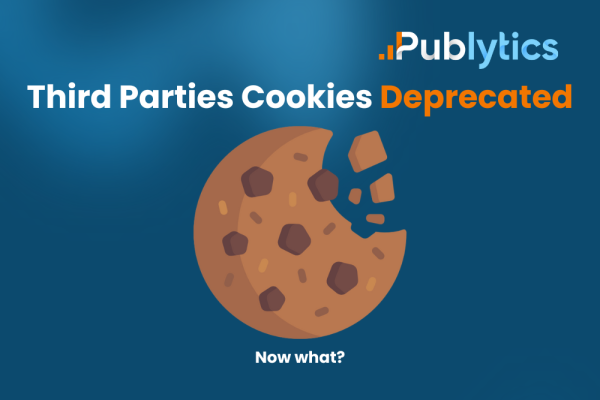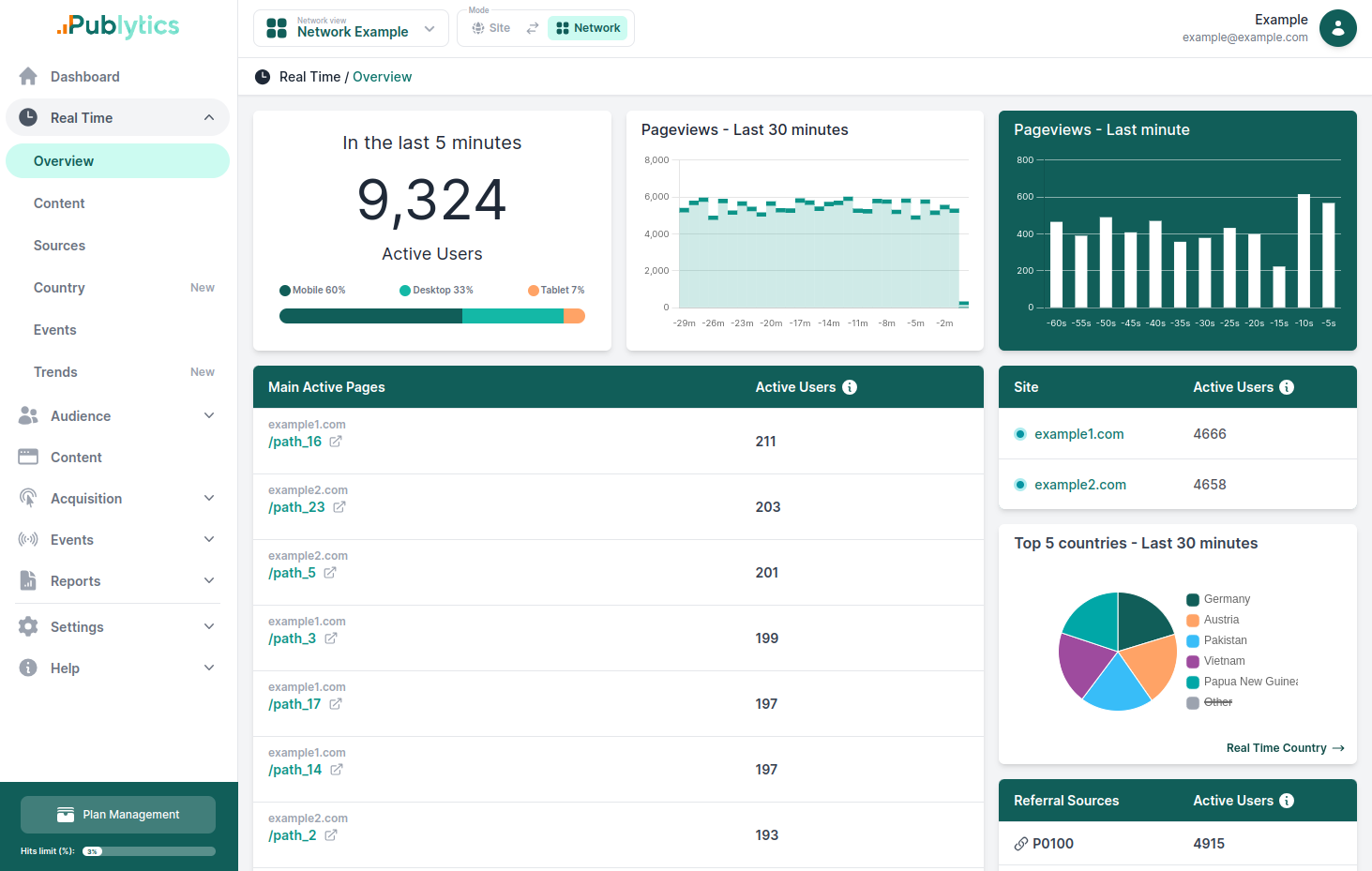Third Party Cookies Finally Deprecated: What Does It Mean For the Web?
Jan 26, 2024 | Author: Info Publytics

The Consequences of Third-Party Cookies Deprecation: Understanding their Functionality, Advantages, Limitations, Exploring Alternatives, and Unveiling Challenges and Opportunities Ahead.
Third-party cookies, the small pieces of data that allow websites to track users across the web, have been a controversial feature of the internet for a long time. They enable useful functionality such as personalization, authentication, and analytics, but they also pose serious privacy risks and enable invasive online advertising.
Firefox and Safari have already taken steps to block or limit third-party cookies by default, but the most widely used browser, Google Chrome, has been reluctant to do so until recently.
Google's Pivacy Sandbox Initiative
In 2022, Google announced that it would phase out third-party cookies in Chrome by 2024, as part of its Privacy Sandbox initiative.
The Privacy Sandbox is a set of web standards and APIs that provide alternatives to third-party cookies for various use cases (interest-based advertising, conversion measurement, fraud prevention, and federated login). Google claims that these alternatives will preserve the functionality and sustainability of the web, while enhancing the privacy and security of users.
However, the Privacy Sandbox has also faced criticism and scrutiny from various stakeholders, such as regulators, publishers, advertisers, and privacy advocates. Some of the main concerns are:
- 1. The Privacy Sandbox will give Google more control and power over the web ecosystem, as it will be able to dictate the terms and conditions of the new technologies and influence their adoption and implementation
- 2. The Privacy Sandbox will not fully address the underlying issues of cross-site tracking and user profiling, as it will still rely on aggregated and pseudonymous data that can be linked and de-anonymized by Google or other parties.
- 3. The Privacy Sandbox will not provide sufficient transparency and choice to users, as it will obscure the mechanisms and purposes of data collection and processing, and limit the options and preferences that users can express and exercise.
The deprecation of third-party cookies is a significant change for the web, and it will have profound implications for the online economy, the user experience, and the digital rights of individuals. It is important for web developers, publishers, advertisers, and users to understand the implications of this change, and to prepare for the transition to a more privacy-preserving web.
In this blog post, we will explore some of the key aspects of the third-party cookie deprecation, such as:
- What are third-party cookies and how do they work?
- What are the benefits and drawbacks of third-party cookies?
- What are the alternatives to third-party cookies proposed by the Privacy Sandbox?
- What are the challenges and opportunities of the Privacy Sandbox for different stakeholders?
What are third-party cookies and how do they work?
Cookies are small pieces of data that are stored on your browser by websites that you visit. They are used to remember information about your preferences, settings, and actions on those websites. For example, a cookie can store your login credentials, your shopping cart items, or your language preference.
There are two types of cookies: first-party and third-party.
First-party cookies are set by the website that you are visiting, and they can only be accessed by that website.
Third-party cookies are set by a different website than the one you are visiting, and they can be accessed by multiple websites that share the same third-party provider.
For example, if you visit a news website that has ads from an ad network, the ad network can set a third-party cookie on your browser to track your behavior and preferences across different websites that use the same ad network.
Third-party cookies are often used for online advertising, as they allow advertisers to target users based on their interests, demographics, and browsing history. They are also used for analytics, as they allow website owners to measure the performance and effectiveness of their websites and campaigns. Additionally, they are used for authentication, as they allow users to log in to different websites using the same credentials, such as Google or Facebook accounts.
What are the benefits and drawbacks of third-party cookies?
Third-party cookies have some benefits for both users and website owners:
- 1) They enable personalization, as they allow websites to tailor their content and services to the needs and preferences of each user.
- 2) They enable authentication, as they allow users to access different websites and services using the same credentials, without having to log in multiple times.
- 3) They enable analytics, as they allow website owners to collect and analyze data about their users, such as their behavior, engagement, and conversion rates.
- 4) They enable monetization, as they allow website owners to generate revenue from online advertising, by displaying relevant and targeted ads to their users.
However, third-party cookies also have some drawbacks and risks:
- 1) They compromise privacy, as they allow third-party providers to track and profile users across the web, without their consent or awareness.
- 2) They reduce security, as they expose users to potential data breaches, identity theft, and malicious attacks, if the third-party providers are hacked or compromised.
- 3) They degrade performance, as they increase the loading time and bandwidth consumption of websites, by sending and receiving data to and from multiple third-party servers.
- 4) They erode trust, as they create a negative user experience, by displaying intrusive and annoying ads, and by violating the user’s expectations and preferences.
What are the alternatives to third-party cookies proposed by the Privacy Sandbox?
The Privacy Sandbox comprises web standards and APIs designed to substitute third-party cookies with alternatives that prioritize user privacy. The Privacy Sandbox is based on the following principles:
- 1) Users should have transparency, choice, and control over how their data is used on the web.
- 2) The web should support a healthy and diverse ecosystem of publishers, advertisers, and developers, who can sustain their businesses and innovate.
- 3) The web should protect users from harmful practices, such as fingerprinting, covert tracking, and fraud.
The Privacy Sandbox consists of several proposals that address different use cases and scenarios, such as:
- Federated Learning of Cohorts (FLoC): This proposal aims to enable interest-based advertising, without revealing individual user data to advertisers or websites. Instead of using third-party cookies to track users across the web, FLoC uses machine learning to group users into cohorts, based on their browsing history. Each cohort is assigned a unique identifier, which is shared with advertisers and websites, who can then target ads to the cohort, rather than to the individual user. FLoC claims to preserve the privacy of users, by ensuring that the cohorts are large and diverse enough to prevent re-identification or discrimination.
- Trust Tokens: This proposal aims to enable authentication and fraud prevention, without relying on third-party cookies or other identifiers. Trust Tokens are cryptographically signed tokens that are issued by trusted websites, and can be redeemed by other websites to verify the user’s identity and reputation. Trust Tokens claim to preserve the privacy of users, by ensuring that the tokens do not reveal any personal or behavioral information about the user, and by preventing the linking or tracking of the user across different websites.
- Conversion Measurement: This proposal aims to enable conversion measurement, without exposing individual user data to advertisers or websites. Conversion measurement is the process of determining how effective an online ad is in driving a desired action, such as a purchase or a sign-up. Currently, conversion measurement relies on third-party cookies to link the user’s exposure to an ad with the user’s subsequent action on a different website. The Conversion Measurement API proposes to replace this mechanism with a browser-based solution, that can report the conversions to the advertisers, without revealing the identity or behavior of the user.
- Federated Identity: This proposal aims to enable federated login, without depending on third-party cookies or other identifiers. Federated login is the process of allowing users to access different websites and services using the same credentials, such as Google or Facebook accounts. Currently, federated login relies on third-party cookies to maintain the user’s session and state across different websites. The Federated Identity API proposes to replace this mechanism with a browser-based solution, that can manage the user’s identity and consent, without revealing the user’s personal or behavioral information to the third-party providers.
What are the challenges and opportunities of the Privacy Sandbox for different stakeholders?
The Privacy Sandbox is a complex and ambitious project, that will have significant impacts on the web ecosystem, and will affect different stakeholders in different ways. Some of the main challenges and opportunities of the Privacy Sandbox are:
- For users, the Privacy Sandbox offers an opportunity to enhance their privacy and security on the web, by reducing the amount and scope of data that is collected and shared by third-party providers. However, the Privacy Sandbox also poses some challenges for users, such as the lack of transparency and choice over how their data is used and processed by the Privacy Sandbox technologies, and the potential for unintended consequences, such as the creation of new forms of tracking and profiling, or the exclusion of certain users or groups from the web services and content
- For publishers, the Privacy Sandbox offers an opportunity to improve their user experience and trust, by providing more relevant and respectful ads, and by complying with the user’s preferences and expectations. However, the Privacy Sandbox also poses some challenges for publishers, such as the loss of revenue and control over their online advertising, and the dependence on Google’s technologies and policies, which may not align with their own interests and values
- For advertisers, the Privacy Sandbox offers an opportunity to optimize their online advertising, by leveraging new and innovative technologies and methods, and by reaching more engaged and loyal users. However, the Privacy Sandbox also poses some challenges for advertisers, such as the loss of accuracy
Recent Posts
-
Enhancing Data Privacy in Web Analytics
May 13, 2025 | Author: Bruno Cazzaniga
-
How to Track Logged-in Users Without GA4 and Optimize Your Strategy
Mar 31, 2025 | Author: Bruno Cazzaniga
-
Track Article Author: How to Measure Content Creation Performance
Mar 14, 2025 | Author: Bruno Cazzaniga
-
Why Your Multi-Sites Deserve a Unified Dashboard
Feb 26, 2025 | Author: Bruno Cazzaniga
-
How to track traffic from Bluesky in Google Analytics (GA4) and other analytics tools
Dec 08, 2024 | Author: Info Publytics
Start monitoring your websites in few seconds No credit card required!
Start monitoring your websites in few seconds


